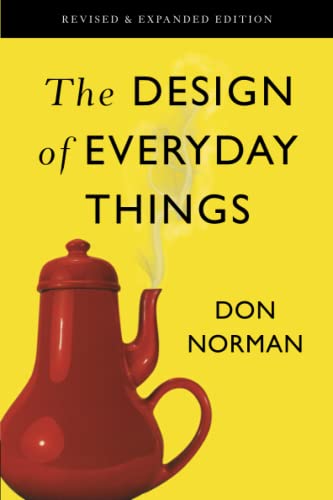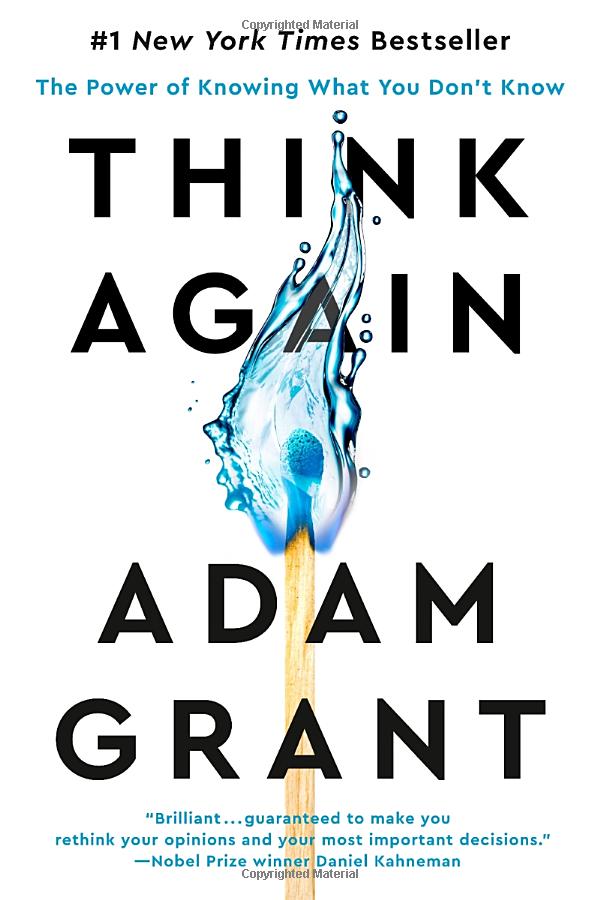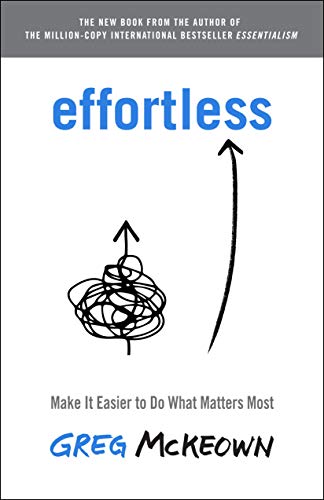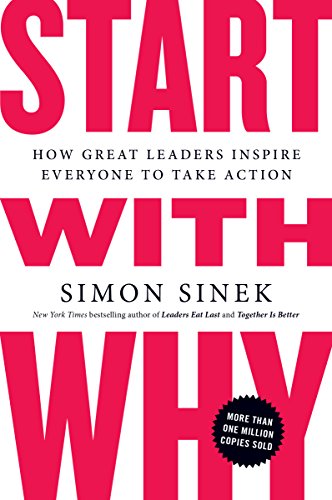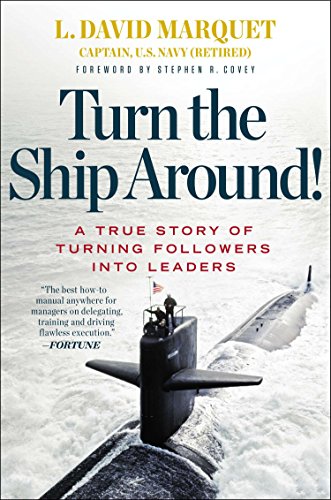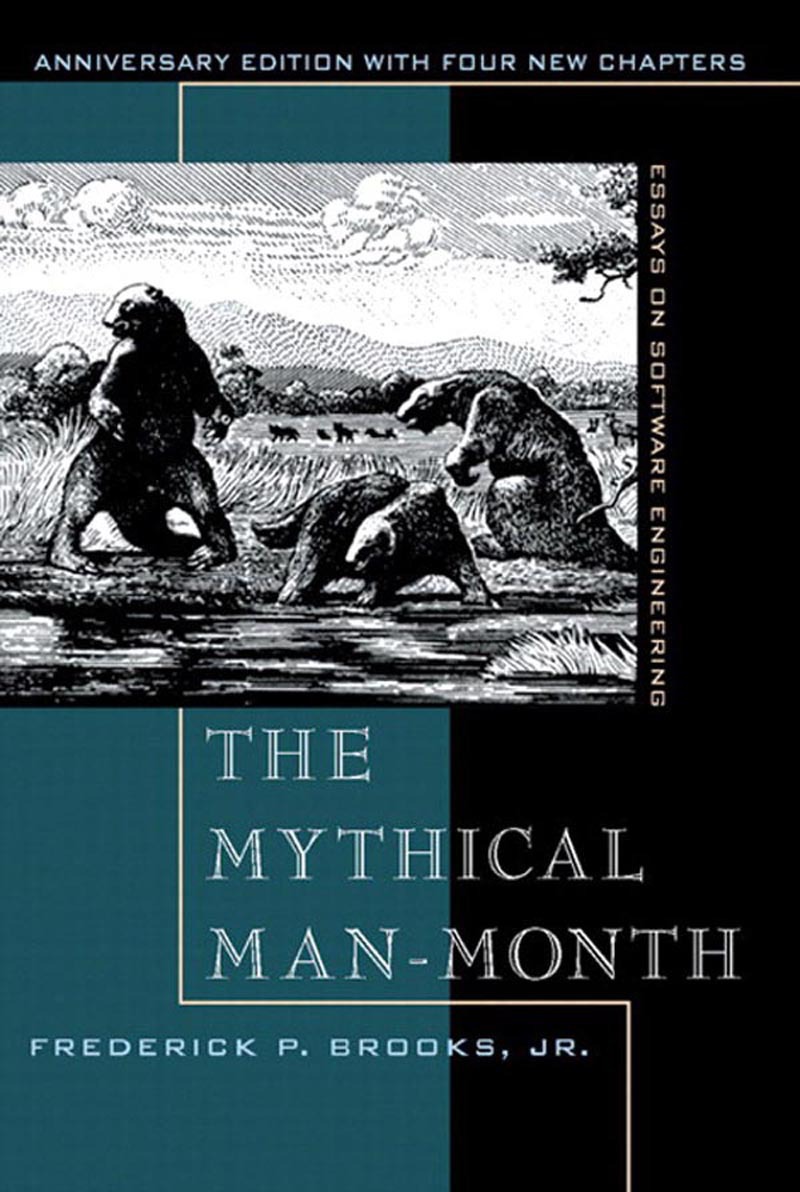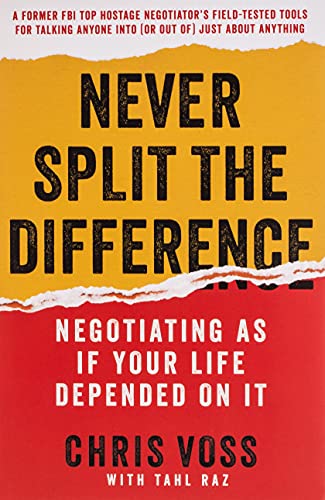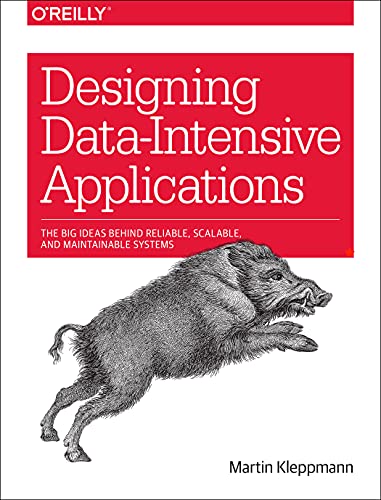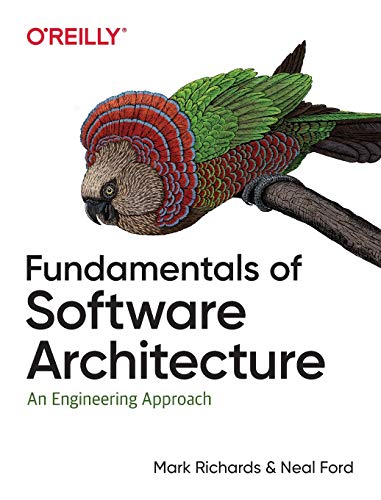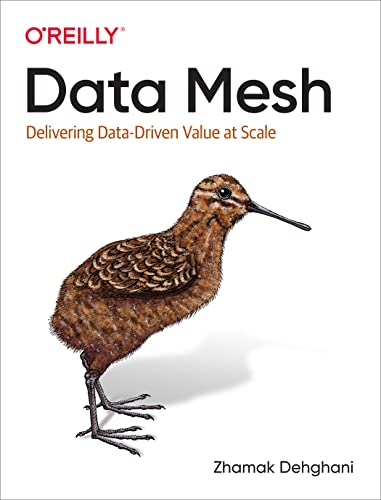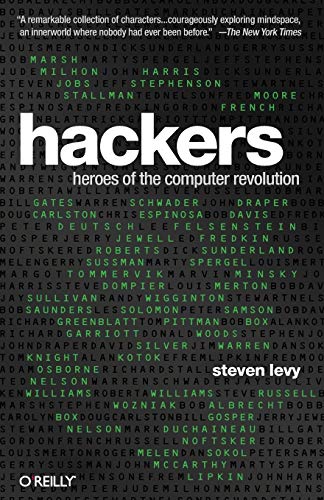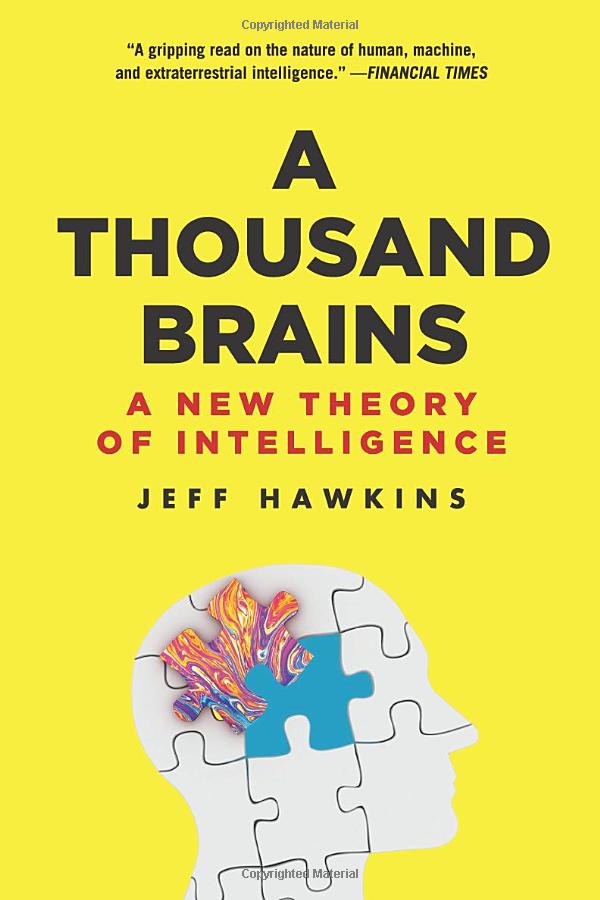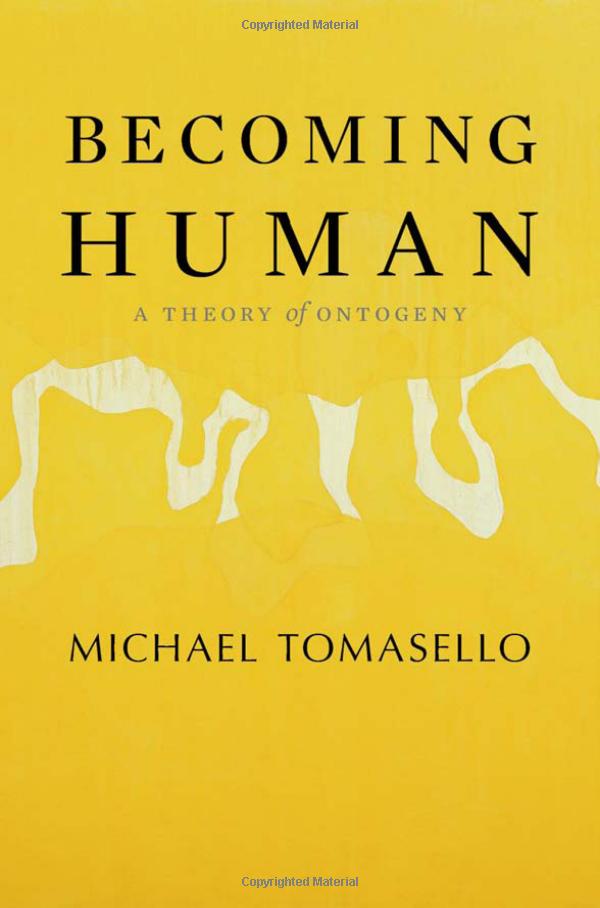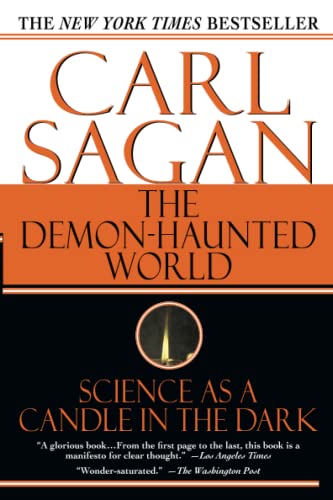This list isn’t meant to be entirely comprehensive to all books I’ve read. Most of the books I’ve forgotten about, and I didn’t think to start doing this until recently. I keep a more diligent list on my goodreads profile, as well as more substantive notes on most books at https://itsmynotes.com.
Business Books
The Design of Everyday Things
Rating: 10/10
This book has lent me a vocabulary to wield in the battle to build usable systems. It is no exaggeration to say that thinking about usability in the way Norman posits has been the difference between success and failure for systems and processes I've built. This book is canon for user-centered design and for anyone who designs anything to be used by humans. Several times a week, I talk about affordances, and how key to design it is to consider who is using your system, and how you build those affordances and then signify them.
Think Again
Rating: 7/10
Self-help books fall along a gradient of scientific rigor. Fortunately, Think Again makes its case for rethinking by bolstering its argument with studies, presented as evidence rather than justification, and strips out the simplistic geometric images of most self-help books that, although make good slideshow presentations for selling a consultancy framework, often deceive or over-simplify. Grant takes your time more seriously (although he doesn't take himself too seriously, peppering the book with humorous comics and images). The book is a compelling toolset for personal rethinking, although there might've been some room to more thoroughly declare an epistemology and especially how that is tied up with our identities.
Effortless
Rating: 5/10
Your mileage may vary depending on how similar you think achieving hard business outcomes is to free throw shooting. McKeown moves adjectivally from his first book, from _Essentialism_ to _Effortless_ (one could imagine the -ness was dropped in some editing room with a hard-and-fast rule dictating that single word titles can't exceed 3 syllables or 3 s'es). McKeown outlines three stages of achieving this effortlessness, from effortless state to effortless actions to effortless results. There is some valuable, although commonsensical, advice (get enough sleep, be an active listener) interspersed with some Fletcherism (essential work broken down to three sessions of no more than 90 minutes, don't do more today than you can recover from today, clear physical clutter to clear mental clutter).
McKeown also claims to leverage cognitive research to validate his theories, and while there are passing references to things like perceptual load theory or the cognitive ease principle, this book is not about the research. It's a fast read and if nothing else is valuable for the idea of inverting hard problems to ask what they would look like if they were easy. That, and we should all be taking more _effortless_ naps.
McKeown also claims to leverage cognitive research to validate his theories, and while there are passing references to things like perceptual load theory or the cognitive ease principle, this book is not about the research. It's a fast read and if nothing else is valuable for the idea of inverting hard problems to ask what they would look like if they were easy. That, and we should all be taking more _effortless_ naps.
Start With Why
Rating: 3/10
Not much more to gain from this beyond the title. Link to longer review.
Turn the Ship Around
Rating: 6/10
A solid sea-faring jaunt. Link to longer review.
The Mythical Man-Month: Essays on Software Engineering
Rating: 8/10
This is one that straddles the line between business and tech, so in lieu of low value genre dissections, I've picked one. The book's reputation is merited, and the Lindy effect is in full display. Link to longer review.
Never Split the Difference
Rating: 8/10
I've heard this book spoken of in rarefied air, as a bible of effective negotiation. And Voss, the author, certainly has the pedigree. And conceptually, the idea of tactical empathy rings true, even if it seems manipulative. I think that's this books strength, in that in encourages you to overcome the ickiness of seeming to "manipulate" people; every negotiation is an attempt to manipulate, and we need to recognize the fundamentally human aspects of the other side of the negotiation in order to uncover leverage points, to persuade, to convince. Life is a negotiation, Voss argues, and then goes on to outline a whole bunch of tools to gain the upper-hand, leaning on cognitive theory, negotiation frameworks, and his conception of tactical empathy to make the case. I used some of the ideas in this book to negotiate a repayment plan with a delinquent contractor, and it seemed to be effective. I will certainly be coming back to my notes before any higher stakes negotiation.
Tech Books
Designing Data-Intensive Applications
Rating: 10/10
Should be required reading for anyone working with data in a technical capacity. Takes you from files on a filesystem all the way to complex, distributed systems. I've read it a few times now and will probably make a habit of re-reading every once in a while to refresh. An absolute masterpiece that rightfully deserves the praise it receives.
Fundamentals of Software Architecture
Rating: 7/10
Provides a decent overview of architectural concerns. As far as a handbook on architecture goes, you could do worse. Each topic is handled somewhat superficially, but this book shouldn't be treated as a deep dive into architecture topics but rather a foundation to build a mental model with. Architecture encountered in the wild will be messier than this still life, but this book is a good practicum. Also, I wish more books did this, but there are questions at the end of every chapter and there are architecture katas provided to practice.
Data Mesh
Rating: 6.5/10
Rating this book feels inextricably linked to rating Data Mesh as a framework, which seeks to be the fourth wave of the data revolution, supplanting mutli-modal cloud architectures. While the idea is nice (who wouldn't want to work in a company where you could implement this?), it feels far too idealistic; this would be impossible to implement at the places I've been. There are some interesting ideas, and particularly the idea of a data product, and the book has a wonderful bibliography. Data Mesh is coming out of ThoughtWorks, so it'll have that cache and is worth knowing about even if you never have the good fortune to see even part of a data mesh come to fruition.
Hackers: Heroes of the Computer Revolution
Rating: 7/10
This is a now canonical book covering the three generations of hackers, from the Tech Model Railroad Club at MIT in the 60s, to the creation of the first personal computers like the Altair 8800 catering to hobbyists and centered around the Homebrew Computer Club in Silicon Valley, and finally, the book shifts to the nascent video game industry, profiling Sierra On-Line and the decline of the hacker auteur. The book features a memorable ensemble cast and was enjoyable reading for an historian of the human side of the history of computing.
Science Books
A Thousand Brains
Rating: 7.5/10
As Richard Dawkins says in the foreword, this book "will turn your mind into a whirling maelstrom of excitingly provocative ideas". I don't know much about the brain and how intelligence works, but after having read this book (and Hawkin's first book, _On Intelligence_ in the past), I want to learn more. I'm still trying to wrap my head around the idea that thinking is movement, although, regardless of it's veracity, I love the idea that the brain has thousands of models for every object vying for election to "true" (our perception is just a model!). Worth the read, although Hawkins the neuroscientist is stronger than Hawkins the futurist, the philosopher, the prognosticator.
Becoming Human
Rating: 8/10
One of those books that made me see the world in a different way. Collaboration, in the form of joint intentionality and shared intentionality (which we can think of as individual and cultural collaboration, respectively), is not just a quirk of humans but rather what separates us from animals. The mechanisms of this collaboration are not just socially mediated, but evolutionary. Tomasello takes a multi-disciplinary approach, marrying philosophy, pedagogy, linguistics, sociology, and psychology to present a rigorously tested (and he certainly parades out the studies) view of what he calls a maturational theory of ontogeny (read: human development). If we borrow Dawkins conception of selfish genes, then our very genetics is built upon perpetuating these mechanisms of collaboration, which has far-reaching implications for things like in-group/out-group exclusion, individual success, persuasion, and even happiness.
The Demon-Haunted World
Rating: 7.5/10
Carl Sagan weaves a deft argument against anti-science ideals, starting with alien abductions but tracing a line back to witch hunts of the Middle Ages. The argument is compelling to those who already view the importance of the scientific method as paramount, although a book on viral fringe ideas feels somewhat incomplete without reckoning with the Internet, a place where any fringe idea has an identity-affirming community ready-made, to be slipped on like a jacket. Inertia and laziness are no longer a firebreak against the virality of any idea. But this book can hardly be faulted for its publication date, 1995. If nothing else, it makes you wish Sagan were still around to build ironclad arguments about the world we currently live in.
